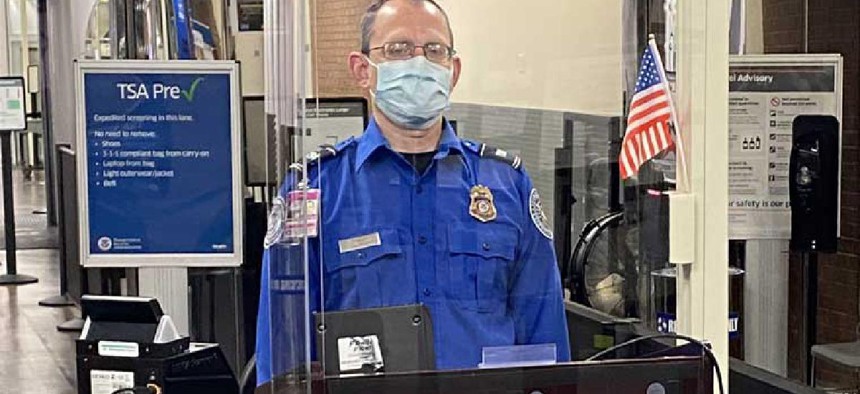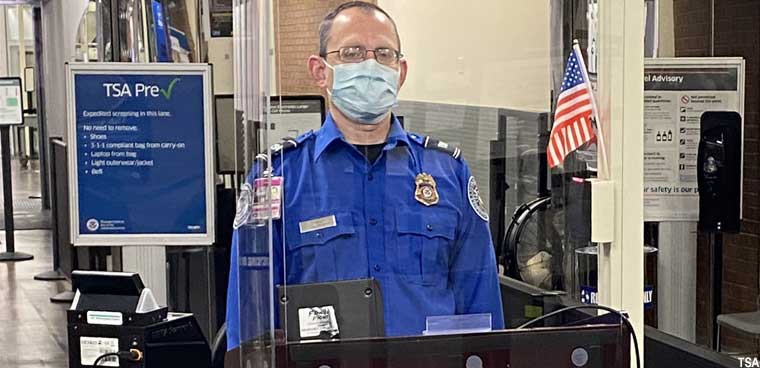House Dems, unions pitch plan to reclassify TSA screeners

So far, Republicans haven't signed on to a plan to alter the agency's unique personnel situation. Some experts caution that there are untended consequences from a move to put TSA officers under Title 5.

A push by Democrats and federal employee unions to reclassify Transportation Security Administration officers as Title 5 federal employees with access to full civil service benefits and protection is gathering steam on Capitol Hill, but faces opposition from Republicans.
Currently, the TSA administrator has broad powers over its personnel management system. Democrats have been pressing a bill to eliminate the current TSA specific system and convert screeners to Title 5 which would give them access to the Merit Systems Protection Board and whistleblower protections and put them on the general schedule salary plan. It would also expand their access to union representation.
Currently, TSA screeners have representation from the American Federation of Government Employees but their bargaining rights are limited.
Supporters of a bill to give screeners Title 5 status say the measure will help improve low morale among agency employees.
At a May 4 House hearing, Tom Warrick, a nonresident senior fellow and director of the Future of DHS Project at the Atlantic Council, said that employee morale was linked to transportation security outcomes.
Low morale "diminishes the effectiveness of the workforce, lowers employee retention rates and increases costs to hire and train new people," Warrick told lawmakers on the Transportation and Maritime Security Subcommittee of the House Homeland Security Committee. "These really do translate into security."
In 2019, TSA, was ranked 398 of 420 agencies in government analyzed by the Partnership for Public Service for its annual Best Places to Work rankings. The agency employs more than 50,000 people.
Dissatisfaction with pay, which starts between $16 and $20 per hour depending on location, is also a pressing issue.
"Pay is their number one issue. I listen to them every single day," AFGE National President Everett Kelley said at the hearing. "So many of them can barely make ends meet because of that."
TSA employees have also been on the front lines of the coronavirus pandemic. Sixteen TSA employees have passed away from complications from the virus and 7,863 frontline TSA workers have contracted the virus, according to data provided by the agency.
"Had we had a union present that was really talking about how we can make a safer workplace … I don't think we would've seen that many deaths," Kelly said.
Rep. Carlos Gimenez (R-Fla.), ranking member of the subcommittee, said TSA could use its existing powers to fix low morale and fund higher TSO salaries. The current personnel system, he said, "provides the flexibility TSA needs so that it can quickly and efficiently adjust his workforce management to respond to emergency threats or national emergencies."
Jeffrey Neal, a former federal chief human capital officer and a frequent commentator on federal workforce issues, said that while some aspects of the Title 5 reclassification could help TSA employees, moving into the general schedule for pay may have unintended consequences.
"There's also no guarantee that [transportation security Officers] are going to classified at any particular grade level," he said. "The General Schedule … was designed in 1949 for a workforce of a million clerks," he said. "I urge the subcommittee to actually take this opportunity to consider moving beyond the General Schedule."
At a May 5 appropriations hearing, acting agency head Darby LaJoye said that compensation was a key issue for employees.
NEXT STORY: OMB job satisfaction scores plummeted in 2020



